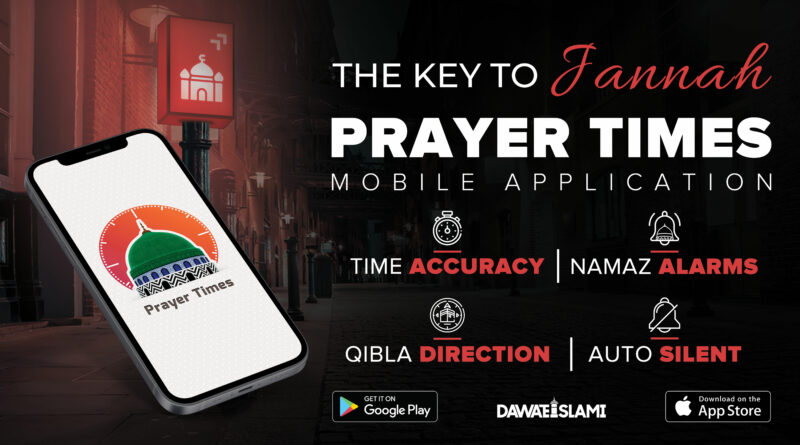The Significance of Ramadan Namaz Timing: Understanding Prayer, Fasting, and Islamic Traditions
Ramadan, the ninth month of the Islamic lunar calendar, holds immense significance for Muslims around the globe. It is a month of fasting, prayer, reflection, and community. Among the numerous practices observed during Ramadan, adhering to precise namaz (prayer) timings plays a crucial role in fulfilling spiritual obligations.
In this blog, we explore the importance of Ramadan namaz timings, the use of prayer timetables, the reasons behind fasting, and the deep-rooted traditions of praying salah (formal prayer) and fasting in Islam, delving into the history of this sacred religion.
The Role of Namaz Timings in Ramadan
Namaz, also known as salah, is one of the Five Pillars of Islam—core practices that shape a Muslim’s faith and actions. During Ramadan, Muslims are especially diligent about offering prayers at their prescribed times. The daily prayers include Fajr (pre-dawn), Dhuhr (midday), Asr (afternoon), Maghrib (sunset), and Isha (night).
In Ramadan, two additional prayers gain prominence: the Taraweeh prayer, performed after Isha, and the Tahajjud prayer, which is optional but often observed in the last ten nights of Ramadan. These prayers are opportunities for Muslims to draw closer to Allah, seek forgiveness, and reflect on their spiritual journey.
The Use of Prayer Timetables
Prayer timetables serve as essential tools for Muslims, especially during Ramadan. These schedules list the precise timings for each of the five daily prayers, taking into account the geographical location of the observer and the time of year. Since Islamic prayer timings are tied to the sun’s position, they vary from one location to another and shift slightly each day.
During Ramadan, prayer timetables also indicate the Suhoor (pre-dawn meal) and Iftar (breaking of the fast) timings, ensuring that fasting Muslims adhere to the correct schedule. These timetables help maintain discipline, synchronize communal worship, and foster a collective sense of purpose. By following these timings, Muslims worldwide unite in devotion, irrespective of their geographic or cultural differences.
Why Do Muslims Fast in Ramadan?
Fasting, or sawm, is another fundamental Pillar of Islam. During Ramadan, Muslims fast from dawn to sunset, refraining from eating, drinking, smoking, and other physical needs. The primary purpose of fasting is to attain taqwa, or God-consciousness. It is a means of purifying the soul, cultivating self-discipline, and empathizing with those who are less fortunate.
The Qur’an emphasizes the spiritual objectives of fasting in the verse:
“O you who have believed, decreed upon you is fasting as it was decreed upon those before you that you may become righteous…” (Qur’an 2:183)
Fasting teaches patience and resilience while redirecting the focus from worldly desires to spiritual growth. It is an act of worship and a reminder of one’s dependence on Allah.
The Tradition of Praying Namaz (Salah) in Islam
Prayer is central to a Muslim’s daily life, serving as a direct link between the worshipper and Allah. The tradition of salah dates back to the Prophet Muhammad (▼), who was instructed by Allah during the miraculous Night Journey (Isra and Miraj) to establish prayer as a duty for his followers.
Muslims perform salah in a specific manner, involving physical actions such as standing, bowing, and prostrating, accompanied by recitations from the Qur’an. Each posture signifies humility and submission to Allah. Salah is not merely a ritual but a profound expression of faith, gratitude, and devotion.
Fasting in Islam: Historical and Spiritual Dimensions
The practice of fasting predates Islam and has been observed in various forms by earlier religious communities. In Islam, fasting during Ramadan became obligatory in the second year after the Hijra (the migration of the Prophet Muhammad from Mecca to Medina). The month of Ramadan is especially significant because it marks the revelation of the Qur’an to the Prophet Muhammad.
Fasting in Islam is a holistic act of worship that encompasses both the physical and spiritual realms. It is not limited to abstaining from food and drink but extends to controlling one’s thoughts, words, and actions. Fasting encourages mindfulness, self-restraint, and a deeper connection with Allah.
The History of Islam: Context for Ramadan
To fully appreciate the traditions of Ramadan, it is important to understand the broader history of Islam. Islam emerged in the 7th century CE in the Arabian Peninsula, founded on the revelations received by the Prophet Muhammad. These revelations, compiled in the Qur’an, emphasize monotheism, social justice, and the importance of community.
The Five Pillars of Islam—Shahada (declaration of faith), Salah (prayer), Zakat (charity), Sawm (fasting), and Hajj (pilgrimage to Mecca)—form the foundation of Muslim practice. Ramadan encapsulates many of these pillars, offering Muslims a time to reaffirm their faith, perform additional prayers, give generously to charity, and engage in communal worship.
The Spiritual Benefits of Ramadan
Ramadan is often described as a spiritual boot camp, an opportunity for Muslims to reset and rejuvenate their faith. The combination of fasting, prayer, and Qur’anic reflection fosters a heightened sense of spirituality. Many Muslims strive to complete the recitation of the entire Qur’an during this month, deepening their understanding of its message.
The night of Laylat al-Qadr (the Night of Decree), which falls in the last ten days of Ramadan, is particularly special. It is believed to be the night when the Qur’an was first revealed, and worship on this night is said to be better than a thousand months. Muslims spend this night in prayer, seeking Allah’s mercy and blessings.
The Role of Community in Ramadan
Ramadan is not only a time for individual reflection but also for strengthening communal bonds. The shared experience of fasting and prayer unites Muslims across the globe. Iftar meals are often communal events, bringing together families, friends, and neighbors. Mosques organize nightly Taraweeh prayers, where entire communities gather to worship.
The spirit of generosity is also amplified during Ramadan. Muslims are encouraged to give Zakat (obligatory charity) and Sadaqah (voluntary charity) to support those in need. This reinforces the sense of responsibility towards the less fortunate and highlights the interconnectedness of the Muslim community.
Conclusion
Ramadan is a month of immense spiritual significance, marked by disciplined prayer, fasting, and reflection. The precise observance of namaz timings, guided by prayer timetables, fosters a sense of unity and devotion among Muslims. Fasting serves as a powerful act of worship, cultivating self-discipline and empathy. The traditions of salah and fasting are deeply rooted in Islamic teachings and history, offering Muslims a pathway to spiritual growth and closeness to Allah.
As Ramadan approaches each year, Muslims around the world prepare to embark on this sacred journey of faith and self-purification. It is a time to reconnect with the divine, strengthen communal ties, and renew the commitment to living a life of righteousness and compassion. Whether through the quiet moments of pre-dawn prayer or the shared joy of breaking the fast at sunset, Ramadan is a testament to the enduring power of faith and the timeless traditions of Islam.




